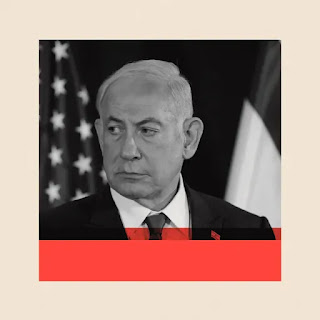Israel’s recent military actions have intensified tensions in an already volatile region, leaving many wondering what Prime Minister Benjamin Netanyahu’s next strategic steps will be. The ongoing clashes, particularly with Hezbollah and Palestinian factions in Gaza, signal that Israel’s political and military leadership is navigating a complex web of security threats, regional power struggles, and internal pressures.
Escalation of Military Tactics
The latest attacks, including airstrikes and ground operations, reflect a shift in Israel’s approach to handling threats from Hezbollah in Lebanon and Hamas in Gaza. With heightened rocket exchanges across the borders, Netanyahu’s government seems intent on demonstrating Israel’s military might while ensuring the country’s security remains intact. However, this aggressive posture raises questions about whether Israel is preparing for an extended conflict or looking for a swift, decisive end to these hostilities.
Israel’s airstrikes in southern Lebanon, which have targeted Hezbollah positions and, at times, civilian areas, suggest a deliberate escalation. By taking a hard-line approach, Netanyahu signals to both domestic and international audiences that Israel will not hesitate to respond forcefully to any perceived threats. These actions are not just about short-term security; they are also a message to neighboring countries and militant groups that Israel will defend its interests with full force.
Balancing Internal and External Pressures
Netanyahu faces immense pressure on multiple fronts. Domestically, his government has been grappling with political instability, protests, and opposition over various policies. The recent military operations also serve as a way to unite a divided public by shifting focus to external threats and reinforcing Israel’s defensive narrative. For Netanyahu, these attacks may also strengthen his political position by showcasing his strong leadership in the face of regional dangers.
Externally, Israel’s relationships with neighboring countries and global powers are on edge. While some international actors, such as the United States, continue to support Israel’s right to self-defense, others have been critical of the civilian toll and the impact on UN peacekeepers. Netanyahu must balance Israel’s military responses with the need to maintain diplomatic ties, particularly with Western allies.
Preparing for a Broader Conflict?
As the situation intensifies, one of the key questions is whether Netanyahu’s government is positioning Israel for a broader, more prolonged conflict in the region. Hezbollah and Hamas have both demonstrated resilience, and any extended military campaign could draw in other regional players, further destabilizing the Middle East. Netanyahu’s calculated moves in recent weeks may suggest that he is prepared for a protracted conflict if necessary, though such a scenario would come with significant risks.
The involvement of UN peacekeepers in the recent clashes and international condemnation of attacks on civilian areas complicate matters. Netanyahu will need to carefully navigate these diplomatic challenges while maintaining Israel’s security goals. His next move may involve a combination of continued military pressure alongside efforts to manage international criticism.
The Road Ahead
Israel’s latest military actions have revealed much about Netanyahu’s priorities: national security, political stability, and maintaining a strong military posture in a region rife with uncertainty. However, the longer the conflict drags on, the more complex the situation becomes. Netanyahu’s next steps will likely involve a mix of military strategy and diplomatic maneuvering, as he seeks to secure Israel’s borders while managing the broader geopolitical landscape.
In conclusion, Netanyahu’s future decisions will shape not only the immediate conflict but also Israel’s standing in the Middle East. The latest attacks signal a government determined to assert its power, but the road ahead is fraught with challenges that could redefine Israel’s role in the region. As the world watches closely, the coming weeks will be crucial in determining whether Israel’s aggressive approach leads to peace or further instability.







0 Comments